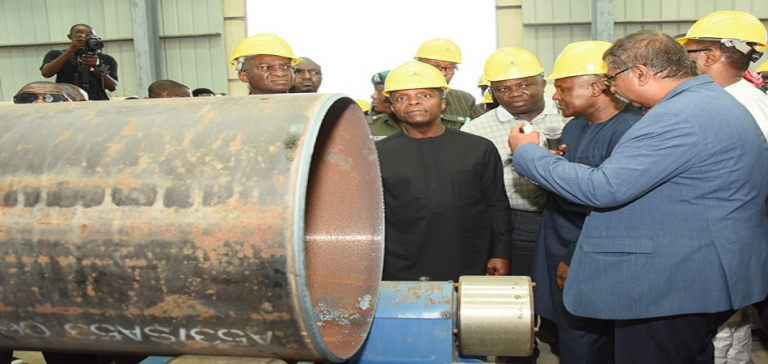
In recent times, the Nigerian oil and gas sector has witnessed significant changes, with the Dangote Refinery coming into operation and the Federal Government of Nigeria (FGN) implementing new executive orders aimed at reforming the industry. These developments have sparked discussions and debates among stakeholders, reflecting the complexities and high stakes involved in the sector that is pivotal to the nation’s economy.
The Dangote Refinery, touted as the largest oil refining plant in Africa, is positioned in Lagos and represents a monumental stride in Nigeria’s quest for self-sufficiency in refined petroleum products. The commencement of its operations amid rising inflation offers a beacon of hope for an economy seeking to improve its manufacturing output and reduce reliance on imported goods.
The Dangote Group, one of Africa’s most prominent and diversified business conglomerates, has been facing a series of challenges in its dealings with the Nigerian government in 2024. The issues have been multifaceted, ranging from regulatory hurdles to financial and infrastructural constraints that have affected the ease of doing business in the country.
Register for Tekedia Mini-MBA edition 19 (Feb 9 – May 2, 2026): big discounts for early bird.
Tekedia AI in Business Masterclass opens registrations.
Join Tekedia Capital Syndicate and co-invest in great global startups.
Register for Tekedia AI Lab: From Technical Design to Deployment (next edition begins Jan 24 2026).
The refinery’s potential to meet 100% of Nigeria’s requirements for refined products and its surplus for export is a game-changer. It signifies a shift from the longstanding practice of exporting crude oil for refining and then re-importing it, a cycle that has contributed to the country’s economic challenges. With the refinery’s activation, Nigeria aims to end gasoline imports, which could foster a new domestic market for its crude oil and alleviate the financial burden of importation.
Moreover, the National Assembly has acknowledged the private sector’s struggles, emphasizing their commitment to addressing these challenges. The Speaker of the House of Representatives, during a visit to the Dangote Refinery, highlighted the legislative body’s dedication to creating a more business-friendly environment through reforms aimed at streamlining processes and enhancing transparency.
The Dangote Group’s experiences reflect broader issues within the Nigerian business landscape, where private enterprises often grapple with regulatory, infrastructural, and financial obstacles. These challenges underscore the need for a collaborative approach between the government and the private sector to ensure mutual growth and national economic development.
Parallel to the private sector’s efforts, the FGN has shown a commitment to revitalizing the oil and gas sector through policy reforms. President Bola Ahmed Tinubu signed three executive orders on February 28, 2024, as part of these reforms. These orders include tax incentives for oil and gas companies, directives on local content compliance, and measures to reduce contracting costs and timelines in the petroleum sector.
These executive orders are expected to enhance the investment climate and position Nigeria as a preferred destination for petroleum sector investments in Africa. The focus on local content compliance is particularly noteworthy, as it underscores the government’s intent to bolster domestic capabilities and ensure that the benefits of the sector’s growth are felt within the country.
The reforms are not without their challenges and criticisms. The term ‘debacle’ often surfaces in public discourse, reflecting the tensions and high expectations from various quarters. Stakeholders are keenly observing the implementation of these reforms, looking for tangible outcomes that would justify the optimism surrounding the sector’s overhaul.
The interplay between the Dangote Refinery’s operations and the FGN’s policy reforms presents a complex tapestry of economic, political, and social implications. The success of these initiatives could herald a new era for Nigeria’s oil and gas sector, with positive ripple effects across the economy. However, the journey is fraught with uncertainties, and the ultimate impact of these reforms will unfold over time.
As Nigeria navigates this critical juncture, the global community watches with interest, recognizing the country’s role as a leading oil producer and its potential to influence energy markets. The outcomes of Nigeria’s oil and gas sector reforms will likely resonate beyond its borders, affecting regional and international economic dynamics.



